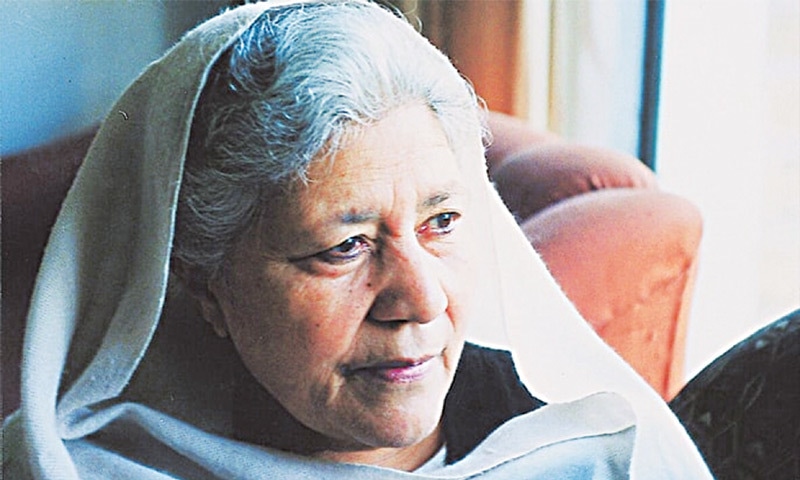Google on Saturday honoured legendary Urdu writer Bano Qudsia on her 92nd birthday with a special doodle. The tech-giant posted, “Today’s Doodle honours the life and legacy of Pakistani novelist and stage and television playwright Bano Qudsia, affectionately known as Bano Aapa (Elder Sister), who is widely credited as one of the most significant Urdu language authors in modern times.” The US-based search engine added, “Happy birthday, Bano Qudsia! Your contributions to Pakistani literature and entertainment will continue to resonate for generations to come!” Several Twitter users took to the micro-blogging platform and shared their two cents about the legendary artist, popular for her writings on love and hope.
She wrote literature in Urdu, producing novels, dramas plays and short stories. Qudsia is best recognised for her book Raja Gidh. She was born on November 28, 1928, in Firozpur, British India. “Even as her legend grew throughout her six-decade career, she maintained a reputation for her radical acceptance and kindness, known to embrace those from all walks of life who approached her for mentorship or assistance,” noted Google. Qudsia penned 25 novels in her lifetime and also launched her own magazine, Dastango.
Today’s Google Doodle honours Bano Qudsia, writer & a spiritualist. Remember as a kid while playing tennis ball cricket at her home I broke her verandas tube light. Readying myself for a dressing down, all I got from her instead was a warm expression to know if I was ok. pic.twitter.com/a2lcinpIIC
— Ramiz Raja (@iramizraja) November 28, 2020
Such Wisdom & Grace?#banoqudsia pic.twitter.com/3mw9dD1PR3
— VEENA MALIK (@iVeenaKhan) November 28, 2020
Diego Maradona: Burj Khalifa Lights Up In Loving Memory Of Legendary Footballer
She was honoured with the Sitara-e-Imtiaz and the Hilal-e-Imtiaz in 1983 and 2000, respectively. The acclaimed novelist passed away in February, 2017. Following Google’s tribute, former ace cricketer Ramiz Raja tweeted, “Today’s Google Doodle honours Bano Qudsia, writer & a spiritualist. Remember as a kid while playing tennis ball cricket at her home I broke her verandas tube light. Readying myself for a dressing down, all I got from her instead was a warm expression to know if I was ok.” Reposting the doodle, actor Veena Malik wrote, “Such wisdom and grace”, alongside a heart emoji. She was and will always be one of the pioneering icons of Urdu literature.
